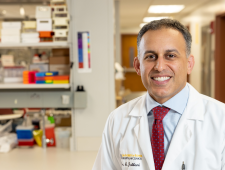Table of ContentsClose
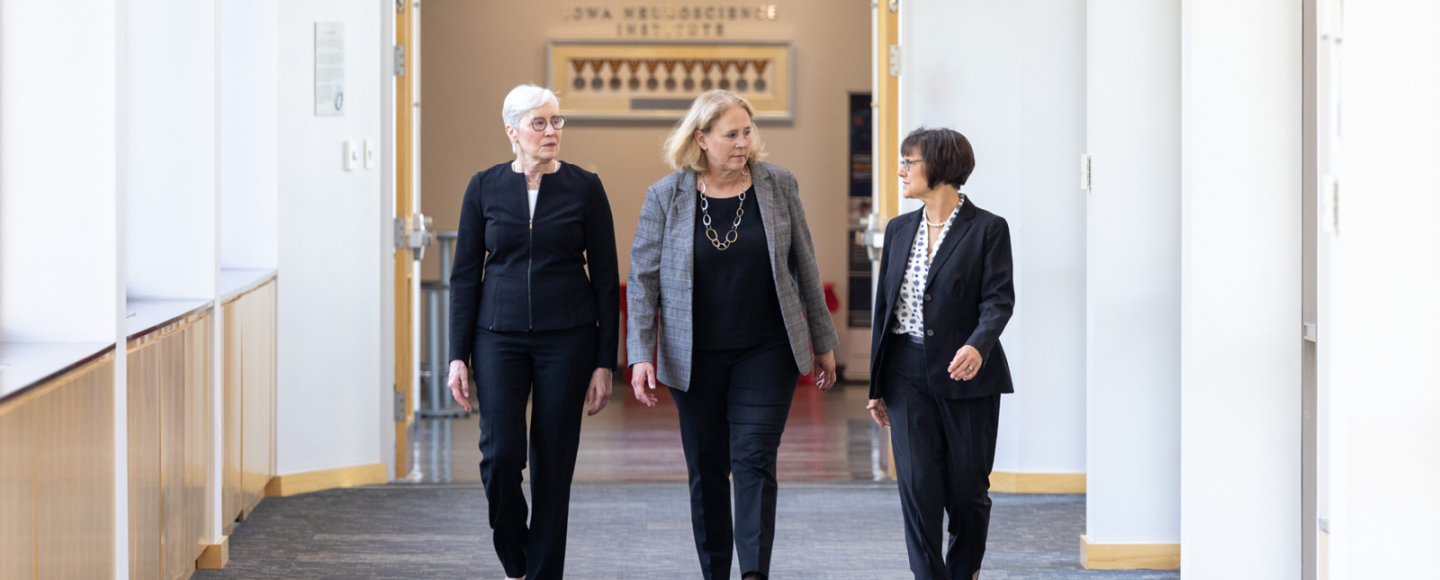
Denise Jamieson, MD, MPH, joined the University of Iowa in August as the university’s vice president for medical affairs and the Tyrone D. Artz Dean of the Carver College of Medicine.
She came to Iowa from Atlanta, where she served as chair of the Department of Gynecology and Obstetrics at the Emory University School of Medicine.
Before that, she spent 20 years at the Centers for Disease Control and Prevention in a variety of leadership roles—guiding, for example, CDC’s Zika emergency response as incident manager.
The big picture
Denise Jamieson, MD, MPH, is pictured with Patricia Winokur, MD, executive dean of the Carver College of Medicine (left) and Kimberly Hunter, DNP, MBA, RN, NEA-BC, interim CEO and chief nurse executive of UI Hospitals & Clinics.
Q. What attracted you to Iowa and this leadership position?
What really appealed to me about University of Iowa Health Care is that it’s mission-driven to serve Iowans across the entire state. That’s very compelling.
Also, UI Health Care’s strengths: its people and its reputation. I’ve spoken to a lot of people who’ve either worked here or were educated or trained here, and they’ve all described it as a very special place. I’m inspired by that.
Q. How have your past experiences prepared you for this role?
At the CDC, I worked a lot on emergency response, and I liked the fast-paced environment and figuring things out quickly. That really honed my leadership skills because you had to build teams and make decisions.
And then, at Emory, I was able to fine-tune and apply some of that experience to academic medicine. The principles of leadership are the same, but the specifics of the culture you’re in differ. That’s why it’s important to foster and maintain a culture that’s collaborative, innovative, and positive.
Q. Workforce recruitment and retention is a big issue for hospitals and health systems nationwide. What can we do to attract and keep providers and staff?
We must continue to tell our story—tell people why Iowa is special. For us, it’s getting our own people to share why they’re here, and it’s also getting people in other parts of the country who have spent time here to share their stories about their Iowa experience.
We also need to make it clear how much we value our employees—letting them know we see their contributions and thanking them. Along with that, create compelling career pathways so that people who are already here will want to stay here.
Q. How would you characterize your leadership style?
I would say I’m a transformation leader who is intentional about being visible and accessible.
I like to take time to listen and gather a lot of perspectives. I love being in places that are moving forward and on the leading edge. For academic medicine, that means excellence in all parts of the mission: research, education, clinical care, and service to the community.
Q. Where do you see ‘excellence’ in these aspects of the overall mission?
First and foremost, continue providing outstanding clinical care. Also, growth in patient care through partnerships and collaborations. For the state of Iowa, it’s going to be important to develop and increase access to care in rural areas. I’m familiar with our cancer, diabetes, stroke, and neuroscience centers. I think there are examples here that can be grown and expanded. But it must be smart, strategic growth—particularly in caring for Iowans who live in rural areas or communities not close to Iowa City.
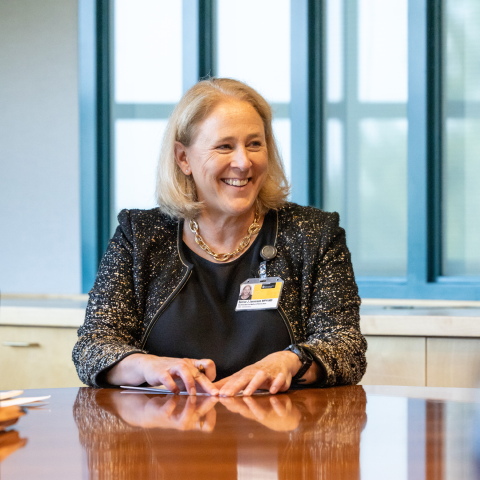
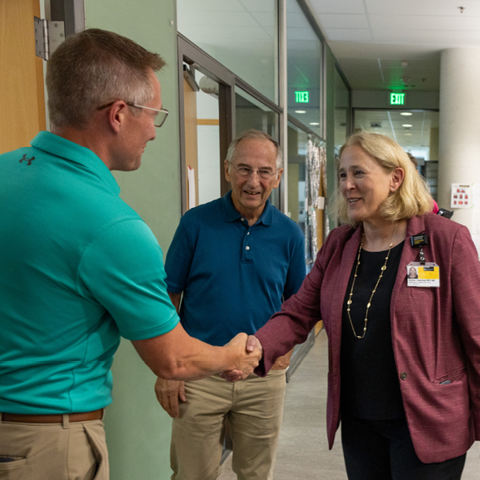
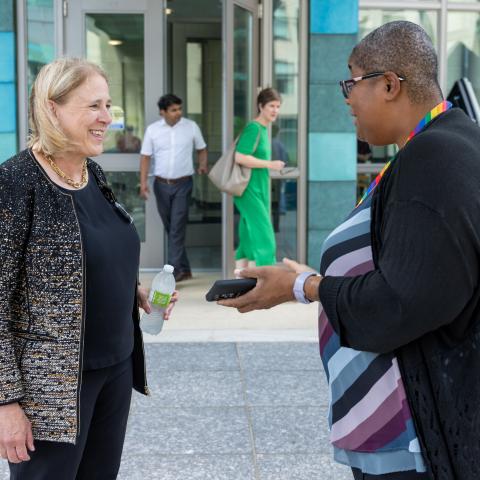
Q. In terms of research, what challenges and opportunities do you see?
There will always be challenges to attracting external funding for research—and for some faculty, even having necessary time for research. These are things we must focus on with careful recruitment, careful retention, providing people with time needed for research, and having the right people doing work they’re passionate about. Also, having supplemental funds at the collegiate or departmental level for innovative ideas that aren’t quite ready to compete for federal funding. I think there’s a method and strategy, and it must be focused.
Q. What about medical education and training?
Education is a real passion of mine, so it’s important that we excite and inspire learners because they bring such great energy and new ideas. There are already a lot of great things happening in the college in terms of the curriculum and opportunities for students. And we have great residency and fellowship programs. One focus will be strategies or incentives to encourage graduating students to train in Iowa and also retain trainees to practice in the state.
Q. You also mentioned community service.
I believe UI Health Care has a clear mission: to be a resource for 3.2 million Iowans across 99 counties. That resonates with me, and there are a lot of opportunities to do that. It’s going to take a multipronged approach with research and clinical components and partnering across the university. Working with the colleges of Nursing, Public Health, Pharmacy, and Dentistry, for example, may provide opportunities to help get this done.
Q. When did you become interested in academic medicine?
I worked as a nursing assistant in Charlotte, North Carolina. That was my introduction to medicine—between college and going to medical school. And I loved it. I was a ‘floater,’ so I worked all shifts, all parts of the hospital. I got to see and experience the hospital in an incredibly valuable way. It gave me a unique perspective.
I went to medical school for two years, then took a leave of absence and got a master’s in public health. That really opened my view in terms of the intersection of public health and medicine. While I was getting my master’s, I did a summer internship at the CDC, and that put the bug in me about finding a way to both practice medicine and have a larger, more population-based impact.
Q. What motivates you?
I love challenges and learning something new. I enjoy tackling problems—using my experience and bringing in other people as appropriate. It is one of the things I love about medicine: There’s always a new problem to solve.
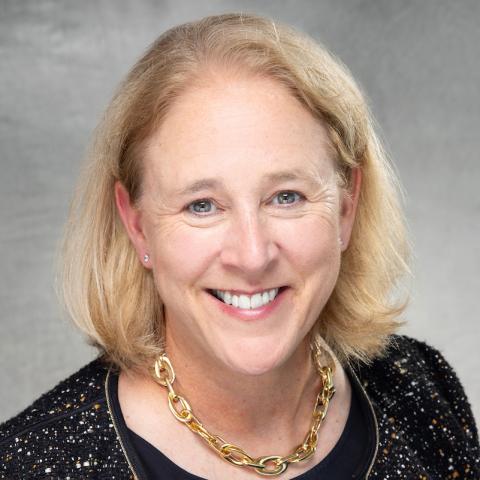
Denise Jamieson
- MPH (1991), University of North Carolina at Chapel Hill
- MD (1992), Duke University
- Resident physician in obstetrics and gynecology (1993–1997), University of California, San Francisco
- Commissioned health officer, U.S. Public Health Service, Centers for Disease Control and Prevention (1997–2017), retired as captain; recipient of the Distinguished Service Medal, the highest award granted to an officer in the Commissioned Corps, for notable contributions to reproductive health and public health practice
- Elected member, National Academy of Medicine (2020)
- The James R. McCord Professor and Chair, Department of Gynecology and Obstetrics (2019–2023), Emory University School of Medicine
- Chief of gynecology and obstetrics, Emory Healthcare (2019–2023)

